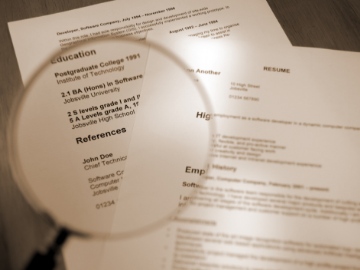How to Explain Your Special Skills in Your Resume

Including your special skills on your resume is key to your job search success. They will signify to an employer what your strengths and abilities are. Outline your special skills clearly on your resume to inform a hiring manager of the value that you'll bring to their organization.
It can be difficult to figure out which special skills to include on your resume. An employer will always look for certain skills, so it is important to understand which special skills will stand out to them. In this article, we will look at which special skills you have, why an employer wants to know them, and how to explain them on your resume.
Which Special Skills Do You Have?
To identify your special skills, you will need to evaluate yourself and your experience and know what you excel at. Sit and write down all the things that you are good at. You can also ask people in your network for some suggestions. Your special skills will be a mix of hard and soft skills, so to make your list clearer, you can break it down into different skill categories.
Here are some examples:
Job Skills:
- Verbal communication
- Non-verbal communication
- Persuasion
- Negotiation
- Organization
- Teamwork
- Problem-solving
- Customer service
Organizational Skills:
- Time management
- Goal setting
- Working under pressure
- Attention to detail
- Coordinating
- Logic
- Reasoning skills
- Categorizing data
Life Skills:
- Self-awareness
- Empathy
- Interpersonal relationships
- Creative thinking
- Critical thinking
- Cooperation
- Curiosity
- Perseverance
Leadership Skills:
- Confidence
- Consistency
- Influential
- Decision making
- Delegating
- People managing
- Strategic planning
- Forward-thinking
These are just some of the many special skills that a person can have. Make sure you can link your skills to accomplishments in previous jobs before you list them down. If you are struggling to think of special skills, here is a link to an article for a more comprehensive list.
Why Does an Employer Need to Know Your Special Skills
An employer is interested in your special skills as it gives them a first impression of whether you will be a good candidate for the position. It also serves to see if you can advance an organization in the way the employer intends through the application of your special skills. These traits and abilities can also distinguish you from the rest of the competition.
As hiring managers often receive a large volume of applications for a position, it is imperative to include the skills that make you unique. They will rank you on these qualities, so it is critical to convey to them the skills that qualify you for the job. How can you highlight them on your resume though?
How to Write Your Special Skills on Your Resume
When it comes to your resume, you must tailor it to the job that you're applying to. This doesn't just apply to your resume objective or past experience, but to your special skills too. If a skill isn't relevant or transferrable to the job in question, it may be worth reconsidering if you should include it or not.
Many resumes will include a skill section. In this skill section, you can simply list the special skills that you have in bullet points. Once you write the skills, you can prove how you have applied them in the workplace.
Next to your bullet points, explain how you have used the skill using action verbs. Use one sentence in your explanation and make it concise. You may wish to expand on this in your work history section, and you can!
In your work history section, you will want to speak about your accomplishments in the position. When doing this, tie in some special skills that helped play a part in your achievements. Be honest and put yourself in a positive light on your resume.
If You Lack Special Skills, Don't Worry!
If you feel that you don't have many special skills to offer, don't fret. There is plenty of time to acquire new skills and build on the ones you already have. Be conscious of what areas you want to improve in and make the steps to do this.
Your special skills are a key asset in the job search. Make sure you highlight them effectively in your resume. Once you've done this, continue to mention them in any other application materials and in interviews to inform a potential employer of your capabilities.


